![]()
|
|
|
|
|
Stoke-on-Trent - Potworks of the week |
Advert of the Week
Photo of the Week
Fountain Place Works, Westport Road, Burslem
|
From |
To |
Occupier |
Comments |
| 1789 |
1790? |
Enoch Wood | Enoch Wood started business as a pottery in 1783. In 1789 he build the Fountain Place Works. |
| 1790? |
July 1818 |
Wood & Caldwell | Enoch Wood was joined by James Caldwell - various dates are given for the start of this partnership: 1790, 1792 and 1795. |
| 1818 |
1846 |
Enoch Wood & Sons | In July 181
the Wood/Caldwell partnership ended when Wood bought out Caldwell and
the business continued as Enoch Wood & Sons. On his death in 1840 Enoch Wood had left substantial sums of money to his 7 surviving children and grandchildren but he stipulated that the legacies should not be paid until at least 5 years after his death in order not to harm the business. As soon as the 5 years were up his children claimed their money which drained the firm of capital and his sons closed the factory with the result that almost a thousand people were thrown out of work. |
| 1851 |
Jan 1862 |
Pinder, Bourne & Hope | Thomas Pinder, Joseph Harvey Bourne and John Hope were in partnership at the Fountain Place Works and also at the Nile Street Works. |
| 1862 |
1880 |
Hope & Carter | The Pinder, Bourne and Hope partnership was dissolved in January 1862. Thomas Pinder, Joseph Harvey Bourne continued at the Nile Street Works as Pinder, Bourne & Co and John Hope was joined by a John Carter and they continued as Hope and Carter at the Fountain Place Works. |
| 1903 |
? |
Century Pottery Coy | The Century Pottery Company were likely a wholesale supplier. They continued until at least 1914. |
|
"Enoch Wood was a man of great stature in the industry having started business in 1783, and having erected most of his works by 1789, together with a windmill to draw water and prepare clay for the potter. Mr. Wood erected a fountain, about 1798, which supplied water to the townspeople by means of an engine, at the manufactory, which pumped the water through pipes laid to a pillar containing the fountain near to the front of the works. This was used freely by the public. To possess a piece of Enoch Wood ware, today, is indeed to own a treasure." Warrillow |
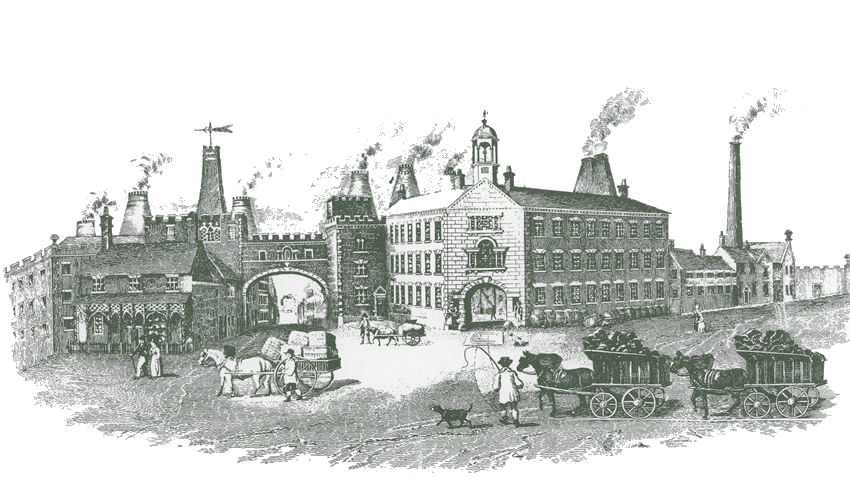
The frontage of Woods
factory in 1840
The carts in the forefront of the picture were bringing coal
from the firm's colliery at Bycars.
Pack Horse Lane was entered through the arch.
|
This engraving shows Packhorse lane, at that time, through the archway as it travels down to Longport, though, about 1842, it was closed and Newcastle Street became the route to Longport The picture shows the East front of Enoch Wood and Sons' manufactory at Burslem, at that time one of the most important works in the district. The picture is full of interest and is one of the illustrations taken from John Ward's History of the Borough of Stoke-upon-Trent. |
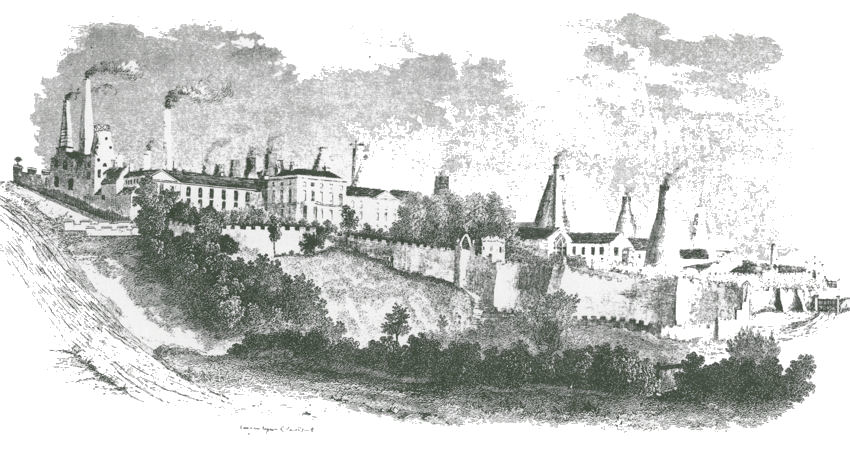
The rear of Woods factory
The house can be seen left of centre, with the walled garden
spreading out down the hill.
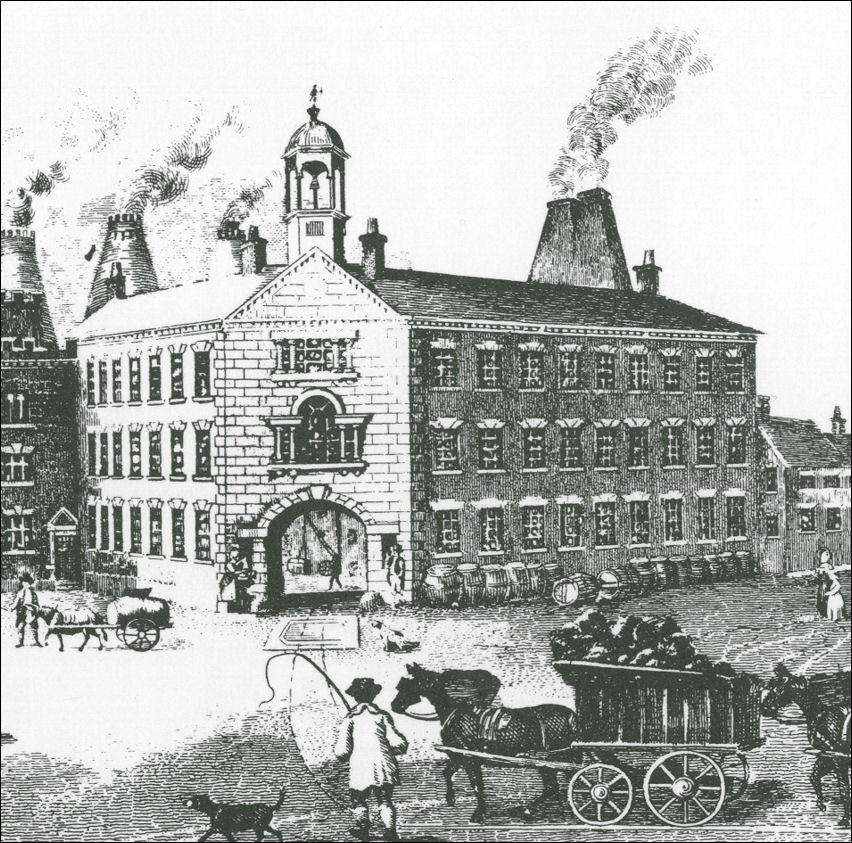
the detail of the entrance,
the Venetian Window and cupola from this 1842 engraving
can be compared with the restored frontage today in 2010
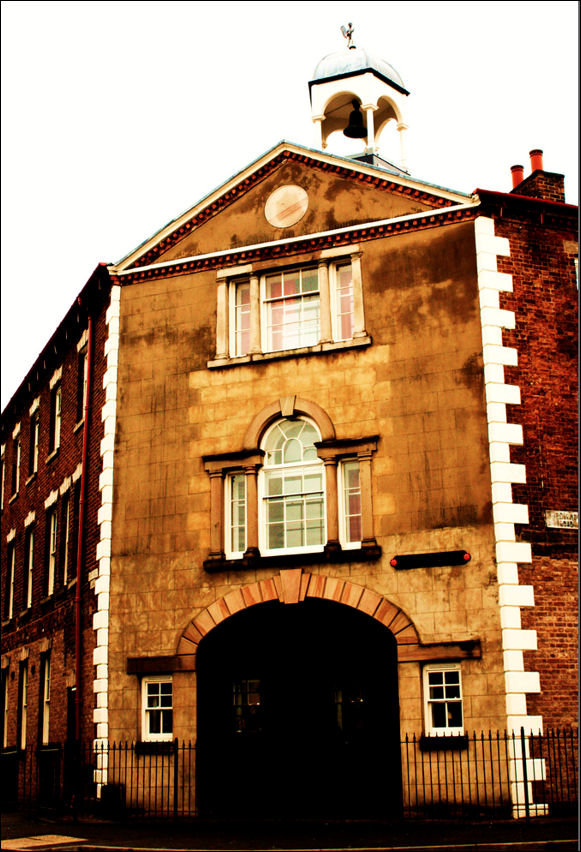
The corner frontage of
the old Enoch Wood Fountain Works
restored in 2000 as flats
photo:
Ian Pearsall
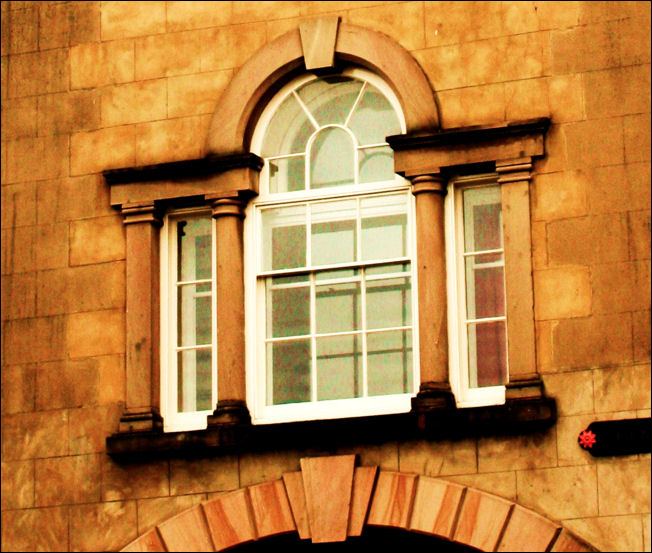
detail of the Venetian Window
at Enoch Woods Works
photo:
Ian Pearsall
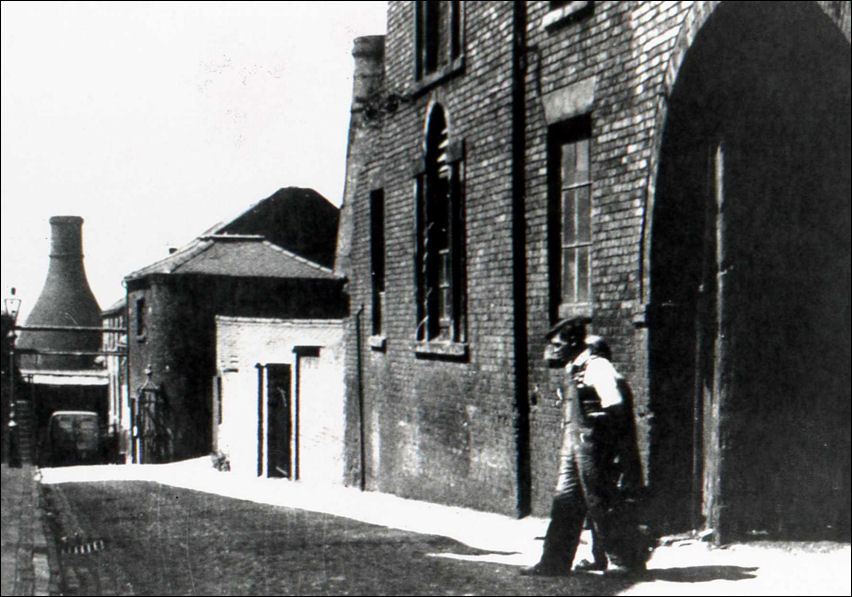
Packhorse Lane in the 1950's
to the right is the sode of the former Enoch Wood works
the lane had been reduced to a mere stump which ended in the small potworks
seen to the left
photo: Warrillow collection
|
Pack Horse Lane ran down one side of the Wood works towards Longport. Another pack horse road (Liverpool Road) ran along the front of the works - from Burslem to Tunstall, known as The Sytch, now Westport Road, where at the far end it joins the main Tunstall to Newcastle Road. Here was a Toll Gate and Toll House. |
|
Related Pages Wood's Fountain Place Works - listed building details Burslem:
The Wedgwood family and Enoch Wood Packhorse
& Turnpikes Advert
for C.T.Lycett
also
see..
Advert of the Week
|